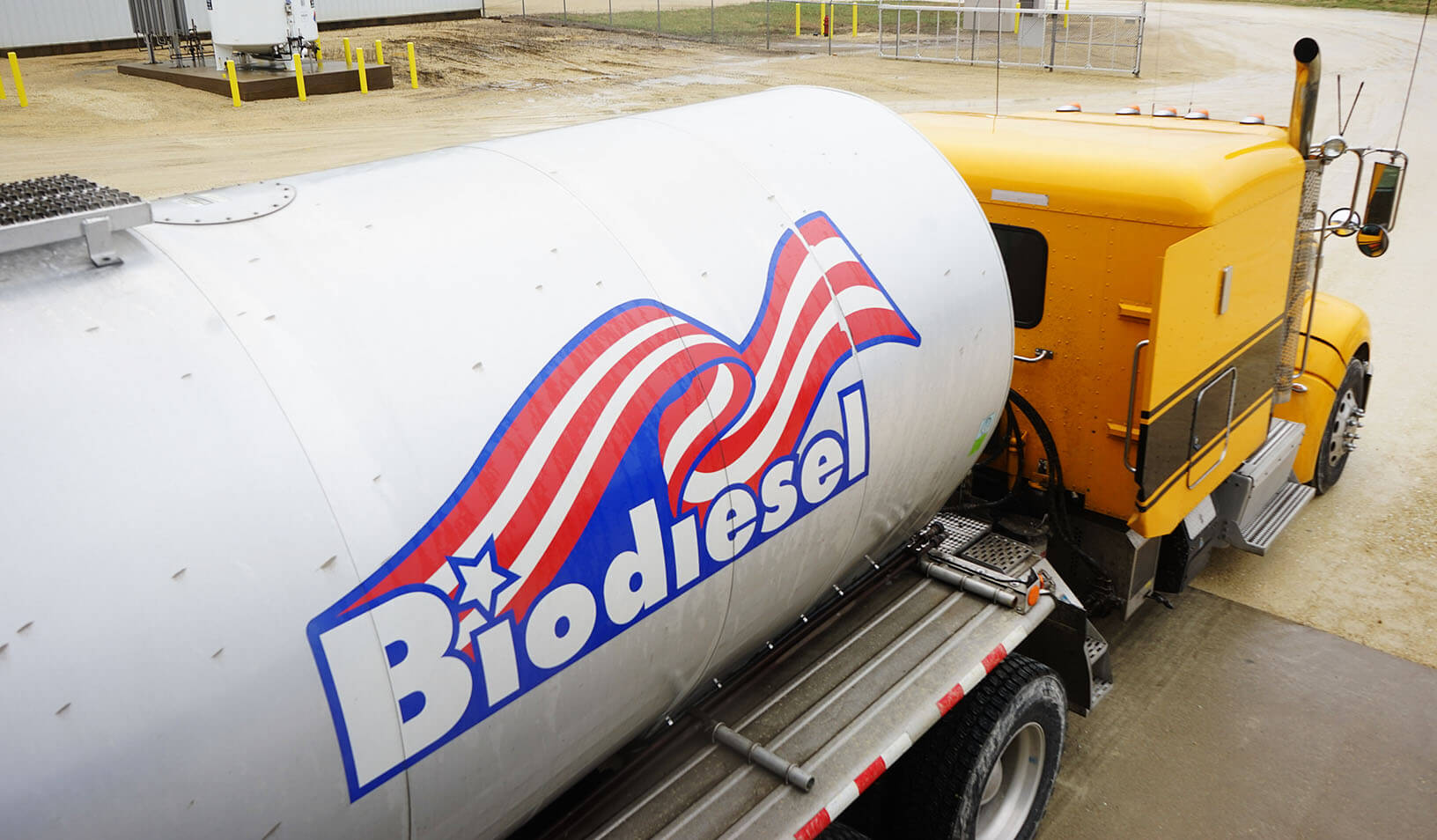
Soybean oil made up 71% of total feedstock use in 2022, providing a market for oil from nearly 162 million bushels (28%) of Iowa soybeans. (Photo: Joseph L. Murphy/Iowa Soybean Association)
EPA Misses Decarbonization Opportunities with Final Renewable Fuel Volumes
June 21, 2023 | Brock Johnston
Ankeny, Iowa – The Iowa Soybean Association (ISA) and Iowa Biodiesel Board (IBB) today expressed frustration in the amount of biodiesel that oil refiners will be required to blend into their petroleum diesel products nationally. The U.S. Environmental Protection Agency (EPA) finalized modest increases in the biomass-based diesel and non-cellulosic advanced volumes for the federal Renewable Fuel Standards for 2023, 2024 and 2025, the groups said.
In the final rule, EPA increases RFS volumes for biodiesel and renewable diesel by only 60 million gallons in 2023, 220 million gallons in 2024, and 310 million gallons in 2025. Although the outyears had more significant increases in this category from the initial proposal, the agency did not listen to industry concerns and left 2023 at the original proposal level of 2.82 billion gallons.
Grant Kimberley, executive director of IBB and senior director of market development at ISA, issued the following statement:
“We’re disappointed that in this rule, EPA fails to recognize the valuable role fuels like biodiesel can play right now in meeting ambitious carbon reduction goals. Despite an earlier pledge of an ‘upward trajectory’ for biomass-based diesel, EPA has instead provided only nominal growth. That sends mixed signals to our biodiesel producers, domestic crush industry and the farm economy. This could have a chilling effect on future investments in low-carbon domestic fuel production, which would run contrary to the administration’s goals.
“EPA must follow established methods for overdue rules and consider the fuel gallons already available to meet the volumes. EPA’s own data show a rapid rise in production already for 2023 - and their low volumes will have a negative effect on the renewable fuel market. While we welcome other technologies that could be brought to scale to aid long-term climate goals decades in the future, it appears the obvious here-and-now solution continues to be overlooked. Rather than encouraging a diverse supply of clean energy, the administration chooses to placate oil refineries and help them minimize their compliance with investing in renewable fuels.”
Randy Miller, ISA president and soybean farmer near Lacona, issued the following statement:
“The biomass-based diesel volumes set by EPA are behind the times, failing to consider the increase in U.S. production of biodiesel, renewable diesel and sustainable aviation fuel we’ve seen. They are also out of touch with the growing domestic availability of low-carbon feedstocks for the production of these fuels, such as soybean oil.
“The administration’s Sustainable Aviation Fuel Grand Challenge sets a goal for 3 billion gallons of SAF. Anything less than substantial growth in biomass-based diesel fuels each year under the RFS is inconsistent with signals from administration and congressional priorities. Now is the time for EPA to throw its full support behind the production of renewable fuels. This would help meet ambitious climate goals while expanding agriculture markets and supporting rural economies.”
###
Not funded by the soybean checkoff
The Iowa Soybean Association is Driven To Deliver market demand, production research, information and insights and regulatory action benefiting Iowa's 37,000 soybean farmers and the industry. For more information, visit iasoybeans.com.
Back